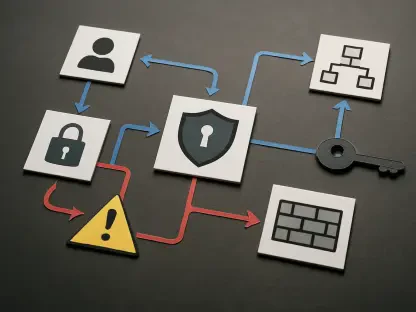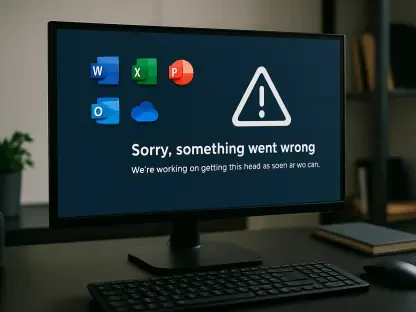In a significant development affecting federal data access protocols, a U.S. District Judge has temporarily blocked the Department of Government Efficiency (DOGE) from accessing the Social Security Administration’s (SSA) extensive systems containing personal information on millions of Americans. The decision, delivered by Judge Ellen Hollander in Maryland, includes an order for DOGE to delete any personally identifiable information it has acquired. This judicial action follows a wave of concerns from labor unions and retirees, who believe DOGE’s extensive access to SSA data infringes on privacy laws and poses substantial information security risks.
Privacy Concerns and Legal Action
Genesis of the Controversy
The judge’s decision to bar DOGE’s access has its roots in an urgent appeal from labor organizations and groups representing retirees. These entities expressed alarm about the breach of privacy laws and the potential for compromising sensitive personal data. DOGE, a relatively small team composed of ten individuals—seven of whom had read-only access—was granted this extensive access as part of a broader initiative spearheaded by the Trump administration. This initiative aimed to root out waste and fraud within the federal government, a mission that, while noble in its intent, has not proceeded without controversy.
Judge Hollander sharply criticized the methods employed by DOGE, characterizing them as a “fishing expedition” lacking in sufficient evidence to justify such broad access. Attorneys for the government defended DOGE’s activities, arguing that they were consistent with existing SSA procedures where agency employees regularly access these databases for audit purposes. However, the plaintiffs highlighted that the level of access provided to DOGE was unprecedented and, by their accounts, excessive, thus crossing the boundaries of acceptable oversight.
Wider Context of Data Security
The broader implications of this case touch upon ongoing concerns regarding DOGE’s operational reach. The department has already found itself embroiled in nearly two dozen lawsuits in recent years. These legal challenges question the efficacy and safety of DOGE’s cost-cutting measures within various government databases, including those maintained by the Treasury Department and IRS. The backlash is considerable and comes not only from external entities but also from within the SSA. Former SSA officials, such as Tiffany Flick, have attested to internal resistance against DOGE’s access, citing undue haste in the process and the potential misinterpretation of data that purportedly indicates fraud.
This internal opposition adds a layer of complexity to the legality and practicality of DOGE’s actions. The SSA’s obligation to safeguard the sensitive information it handles comes into direct conflict with the administration’s push for greater oversight and fraud detection. While fraud prevention is a critical goal, it must be balanced against the fundamental rights of individuals whose data is at stake.
Judicial Critique and Government Defense
Legal Scrutiny of DOGE’s Methods
Judge Hollander’s ruling is part of a growing judicial scrutiny aimed at the methods and extent of DOGE’s operations. Despite the government’s defense that DOGE’s measures align with standard SSA practices and fraud detection protocols, the judge’s condemnation of DOGE’s approach highlights significant legal and ethical concerns. Attorneys representing the government maintained that SSA employees access these databases routinely for audit-related activities and other oversight functions.
However, the judge, reflecting the plaintiffs’ arguments, found that DOGE’s unprecedented level of access went beyond the standard practices typically observed by SSA employees. This critique underscores a broader unease with the delegation of extensive data access to a relatively small and specialized team within the agency. The notion is not that fraud detection is unnecessary, but rather that the means by which it is pursued require reassessment and constraint.
Implications for Policy and Operations
This judicial decision offers a precedent-setting examination of how oversight agencies manage and utilize the vast amounts of data at their disposal. It raises pivotal questions about the future of DOGE’s initiatives and how similar operations might be regulated to balance efficiency with privacy and security. The ruling represents a checkpoint, a necessary pause to reconsider the procedures and protocols that govern data access within the federal government.
Previous judicial opinions have varied, with some courts minimizing the immediate risks, while others have echoed the cautionary stance adopted by Judge Hollander. This growing legal precedent is likely to influence not only DOGE’s future operations but also the broader administration’s approach to inter-department cooperation and the handling of private data.
Balancing Accountability and Privacy
Key Takeaways from the Ruling
Judge Hollander’s ruling emphasizes the need for a balanced approach in combating fraud while safeguarding the privacy and security of personal data. It signifies increasing legal scrutiny over federal data access practices, calling into question the methods by which oversight agencies like DOGE operate. Importantly, the decision mandates immediate action regarding any acquired data, directing DOGE to delete personally identifiable information in its possession.
This ruling sheds light on the inherent tension between government fiduciaries bound to trace and mitigate waste and the privacy rights of American citizens. It also draws attention to the need for clear, stringent guidelines on the extent of access granted to specialized teams within federal agencies. The decision sends a strong message to policymakers about the need for comprehensive regulations that both protect citizen data and allow for effective oversight mechanisms.
Future Directions and Considerations
A noteworthy decision impacting federal data access protocols has emerged as a U.S. District Judge temporarily barred the Department of Government Efficiency (DOGE) from accessing the Social Security Administration’s (SSA) vast systems that hold personal data on millions of Americans. Judge Ellen Hollander in Maryland issued the ruling, which also mandates that DOGE delete any personally identifiable information it previously collected. This judicial move came in response to mounting concerns from labor unions and retirees. These groups argue that DOGE’s broad access to SSA data breaches privacy laws and poses significant data security threats. The decision underscores the ongoing tensions between governmental efficiency initiatives and the essential need for stringent data privacy protections. By prioritizing the safeguarding of personal information, this legal action highlights the critical balance between improving federal operations and upholding the privacy and security of American citizens.









